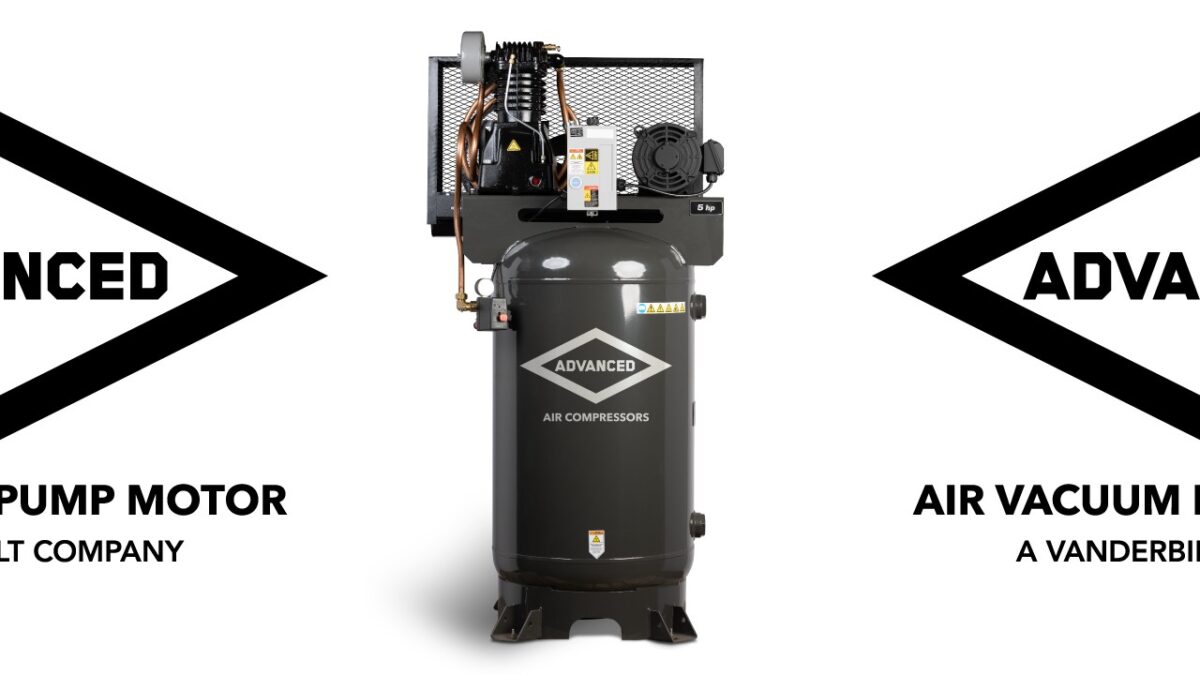An industrial air compressor typically uses oil for lubrication, but there are oil-free alternatives as well. Oil-lubricated versions have oil spread throughout their moving parts, and this oil must be monitored, topped up, and changed on a regular basis. Meanwhile, oil-free versions use a combination of self-lubricating parts and grease to be able to keep moving.
In most applications, oil-using compressors are preferred despite the maintenance involved. This is because they tend to be able to deliver more compressed air than the oilless options. Compressed air volume is important in situations where multiple people will be running tools off the compressor system or when a single/multiple machines simply need a lot of air.
Standard oil lubricated compressors also tend to last longer than oil-free versions. However, there are some applications in which an oil-free air compressor is needed, and in fact, can be mission-critical. This is why there are several oil-free options available.
When Do You Need an Oil-Free Air Compressor?
1. When Oil in the Airflow Would be Disastrous
One of the common issues with oil-lubricated air compressors is oil getting into the output air and lines. In certain applications, having this happen will be catastrophic. Oil could contaminate products that are being produced, gum up or destroy your airlines or equipment, or cause many other problems. One easy way to ensure that there will be no such issues is to choose an industrial air compressor that doesn’t use oil in any place where it could cause catastrophic contamination. Some industries that are likely to have an oil-free compressor include food & beverage, pharmaceutical, medical/dental, and scientific research, almost all products made that are consumed by people should be produced with oil-free air.
2. When Frequent Maintenance is Unlikely
Another time that you may consider an oil-free air compressor is when the machine will be in a situation where regular maintenance is going to be neglected. Scientific labs or schools are good examples of such environments. Anywhere that has workers who are tasked to things unrelated to the air compressor system maintenance, or where no one is specifically in charge of that maintenance, is a good location for an oil-free compressor. Be careful though, sizing the air compressors appropriately for these scenarios is critical to avoid premature failures or ongoing frustrations.
Oil-Free Air Compressor Types
There are several oil-free air compressor designs. Oil-free rotary screw compressors use the same basic principles as their oiled cousins and have two variants: Dry and water-injected. With the dry type, the intermeshing rotors do not touch each other, so friction is prevented. Lubricated timing gears are outside of the compression chamber, and these maintain the relative positions of the rotors without introducing lubrication into the air flow. Heat is reduced via an air-cooled radiator.
Meanwhile, water-injected rotary screw compressors spray water into the compression chamber to seal the gaps between the rotors and reduce heat.
Rotary lobe air compressors use internal lobes that intermesh to create air compression. Since there is no mechanical contact within the compression chamber, the need to oil the chamber is eliminated. Cooling is accomplished by using a two-stage compression cycle, with the air being sent through an intercooler between the stages. In the intercooler, the heat of compression is drawn off and condensate is removed.
Rotary scroll compressors started off as parts for residential air conditioners, but later, industrial versions entered production. These still have lower horsepower than other types of industrial compression equipment. They use two intermeshing scrolls or spirals, one of which is stationary. These spirals do not touch each other, so the need for lubrication in this area is eliminated.
Oil-free reciprocating compressors use self-lubricating parts, non-metallic guides and piston rings, and other such measures to eliminate the need for lubrication in the compression chamber. They are direct adaptations of their oily counterparts. Air cooling is provided by external fans, which are connected to key parts like the cylinder, cylinder head, and sometimes, the heat exchanger. In some cases, the spokes of the flywheel serve as the fan.
In all cases, an oil-free air compressor is only free of oil in its compression chamber. Important parts outside of this chamber may be lubricated with grease or oil. Because of this, you will still need to have air compressor service performed at some point. However, the level of maintenance required may be lower with some of the oil-free systems. Even more importantly, there is no oil in the compression chambers of these machines, so you never have to worry about line contamination leading to product contamination or equipment fouling.
Find Out Which Air Compressor is Perfect for You with Advanced Air
If you need help deciding on whether you need an oil-free air compressor or which specific type of oil-free air compressor to get, call us here at Advanced Air. We can tell you exactly which one will be best for your application after just a quick conversation.
We are also ready to help when you decide to redesign, upgrade, or add to your existing air compressor system. We’ll recommend the best configurations for your compressed air piping, the optimal places to draw compressed air from, and more. Consulting with us for any design issues can save you from inefficient operation and excessive energy costs, premature wear, product losses, and other problems.
We also help you with designing your air compressor piping system, perform air compressor service/repairs (including electric motor repairs), and can get you all parts you need.
If you need an air compressor for a limited time, you don’t have to make the investment of buying one. At Advanced, we offer air compressor rentals for your short-term jobs, as well as for use when your main system is under repair, or for long-term usage if needed. This makes it easy to get the power of compressed air without buying a new machine.
At Advanced, our staff are not mere employees or technicians, we are experts. We have certified specialists in air compression to handle all your compressed air needs, from choosing a new compressor to handling all sizes of air compressor repair jobs with any difficulty, we have solutions. We also have motor specialists who will perform electric motor repair either at your location or in our large in-house repair facility. Contact us today for all your compressed air requirements.

